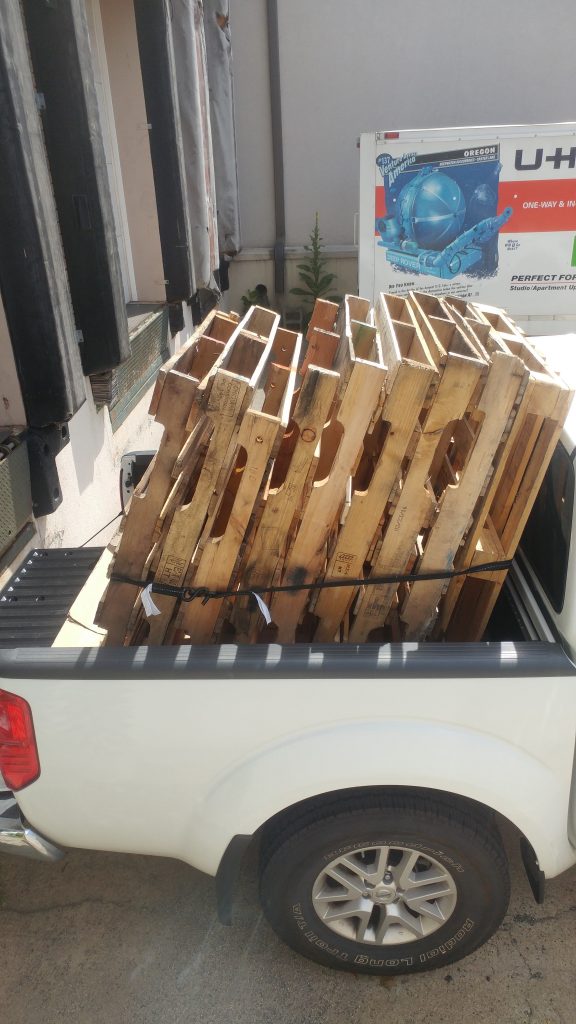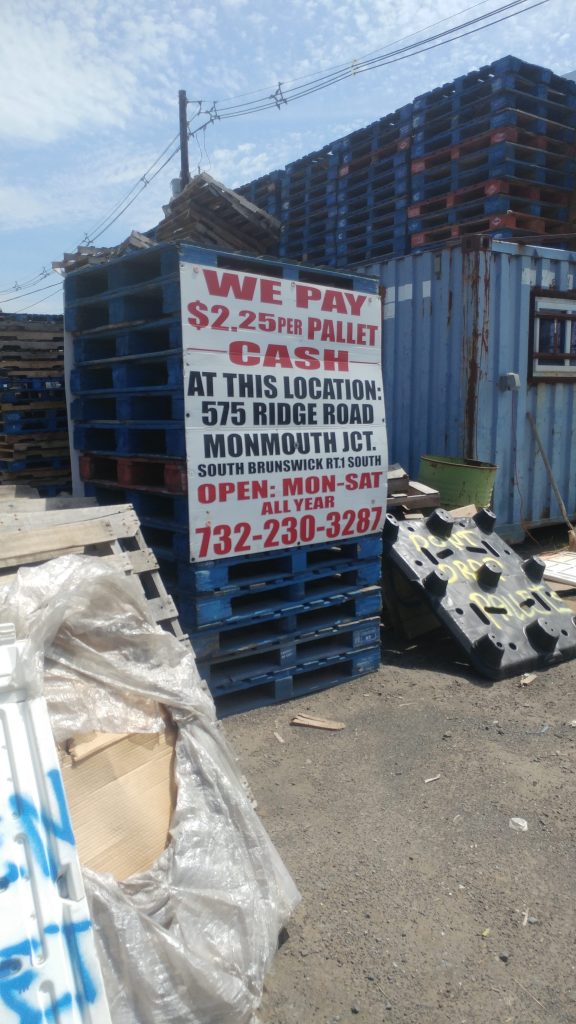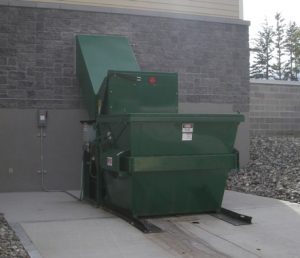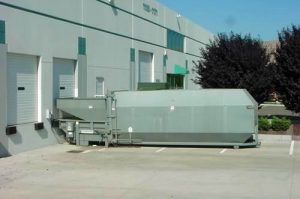Over the last 12 months, the growth in reselling has exceeded my expectations. In fact, I no longer manufacture spend. With all the purchases for reselling, I have been generating massive amounts of waste mostly wood and wood byproducts like cardboard and paper. Over time, I have received and collected a countless number of pallets.

Make Money From Your Supply Chain
What you need to remember is the well-known line, “one man’s trash is another man’s treasure.” As you will see, a 26 year old collects New Yorkers’ trash and sells the recyclables and generates nearly $10 million revenue. He knows that as a collector the state mandates a 3.5 cent per container handling fee. Imagine a team who goes to every restaurant, or a common sight that many New Yorkers will know, someone going through the trash collecting cans. The person sifting through often times garbage or recyclables just obtained 5 cents for the bottle deposit. They drop it off to Galvanize Group and receive 5 cents. Galvanize Group just earned 3.5 cents. Scale up and you have yourself $10 million revenue.
Less than five years out of college, Cutler runs Galvanize Group, a four-year-old business that generates almost $10 million in annual revenue from collecting recyclable cans and bottles around the city and returning them to the distributors, who pay the 5-cent deposit plus a state-mandated 3.5-cent handling fee for each one. In the winter about 1 million empty containers of Coke, Poland Spring and other beverages consumed in the city are sorted weekly by about 35 full-time employees at his Mount Vernon warehouse. Volume doubles during the warmer months, when New Yorkers tend to consume more cold drinks, so he keeps his shop open 24 hours in the summer.
How It Pertains To You
Pallets
Now that you know “trash” is valuable, any of your byproducts from reselling has a resale value that could help recoup some costs. We’ll take the pallets that you might be receiving. Those pallets, especially American pallets, are worth some money. The price of a pallet largely depends on the grade and type of pallet. Grades can range from A to C and pallet types like American, European, Peco, or Chep pallets are some of the factors to the resale value.
To learn more about Chep pallets and tangentially on Peco, Planet Money has a great podcast about it. Chep you will learn has the blue pallets and Peco with red. Because Peco and Chep pallets are leased to various companies, they do not fetch as much in the resale market. You will usually receive a “finder’s fee” for bringing it to them usually around $1. Those pallet companies will then contact Peco or Chep to retrieve their property.

This local pallet place is actually a little deceiving because they don’t pay for anything but an American pallet. They won’t pay out for a European pallet, but would take it as they could take some boards and runners and refurbish B or C quality pallets with the wood.
Cardboard
Embarking on the reselling business, we receive lots of cardboard. Just imagine the level of cardboard, paper, or pallets that Amazon distribution centers receive from sellers like you and me. Not only are they making tons of money from the fees they collect, but they’re also selling our containers. If you use a prep center, I would hope they are selling all of the boxes because at the end of the day, it would help their bottom line and that helps you. If you ever look at the back of a CVS even they have a small baler that looks like this

Places like a supermarket or Target will have a larger baler that looks like this

Supermarkets are probably the best places to look for ideas at how they monetize their waste. Their meat departments save all the fat and sell it to soap companies!
Cardboard also has a spot market like every other commodity. The going rate depending on the quality you sell is anywhere from $100 to $120 per ton. Yes, 2000 pounds for $100 to $120. While it is a lot of cardboard, this is something for you to consider when you expand.
What It All Means
I am fortunate that all of these facilities are all extremely close to me, so transportation and time cost is low. Finding a local place is a fairly straightforward Google search. If you can’t find one, asking local small businesses is a sure-fire way to finding these facilities. It’s how I found the paper recycling and pallet company. I would prefer to sell the cardboard, but do not have the space to store it all. Instead of selling, I donate it to the recycling facility in large batches of about 60 to 80 pounds per trip and monetize the pallets. Local small to medium businesses are great if you are already a customer to pick up pallets for free. They do their best at giving them away because it costs them money to throw it into a dumpster.
Great blog post, I hope to see more from you! That truck looks great, I am happy to see it is getting plenty of use. Keep up the reselling and expanding.
Cheers,
PedroNY
Thanks! There’ll be one more post coming up, after that, I couldn’t tell you when the next one will be
Its always the quiet ones that will surprise you – nice post!